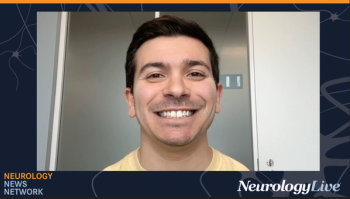
How Early Does Alzheimer Disease Start?
Research findings indicate that signs of Alzheimer may begin earlier than previously thought and genotyping could identify those at risk.
Alzheimer’s disease (AD) is a dire neurological condition that robs people of their memories, their independence, and eventually their lives. It is not clear, however, exactly when the disease begins. A recent study1 from Johns Hopkins University School of Medicine in Baltimore, Maryland, examined whether brain lesions that are characteristic of AD can be present in people with no symptoms of dementia who are between the ages of 30 and 50. The purpose of the research was to try to further define the asymptomatic stage of AD, during which, according to the authors, “people are cognitively intact despite having substantial pathologic changes in the brain.” It is known that asymptomatic AD occurs in elderly people, but it is not clear as to whether it may be present in people who are middle-aged or even younger.
Alzheimer’s disease is generally viewed as a condition that starts in old age. Although early onset AD does exist (usually age 40-50), it makes up only 5% of AD cases.2 Late onset AD is much more common, typically occurring in one’s 60s or older, however changes in the brain may occur decades earlier, even in people with the late-onset form. The early onset form of AD is associated with genes on chromosomes 21, 14 and 1, that control the amyloid precursor protein as well as presenilin 1 and 2, respectively. The genes responsible for later onset AD are not completely understood, although having one form of the apolipoprotein E gene on chromosome 19 does increase the risk of late onset AD.
Led by Dr. Olga Pletnikova of the Department of Pathology, Division of Neuropathology, Johns Hopkins University School of Medicine, researchers obtained the brains of 154 people who were between the ages of 30 to 50, but who had not received an AD diagnosis. They examined the brains for the characteristic hallmarks of AD, including beta-amyloid plaques, neurofibrillary tangles, and tau-positive neurites. They also genotyped DNA samples, to determine whether the individuals had the form of the apolipoprotein E gene that confers late-onset AD risk.
Beta-amyloid lesions occurred in 13 brains from people aged 40 to 49 who had no dementia history. The plaques were diffuse type only-which is an early form of plaque, and were present throughout the neocortex. Five of the thirteen brains had very subtle tau lesions, present in the entorhinal cortex and/or hippocampus, the typical sites for AD neurodegeneration. All of those individuals with beta-amyloid deposits had either one or two copies of the APOE4 allele, which increases risk for late-onset AD. Of those people who were between the age of 40 to 50 who also had the genotype APOE3/4, a third had beta-amyloid deposits, however, two-thirds had no beta-amyloid deposits.
In their report, the investigators concluded that “Our study demonstrates that beta-amyloid deposits in the cerebral cortex appear as early as 40 years of age in APOE4 carriers, suggesting that these lesions may constitute a very early stage of Alzheimer disease. Future preventive and therapeutic measures for this disease may have to be stratified by risk factors like APOE genotype and may need to target people in their 40s or even earlier.”
Genotyping for the APOE4 variants may bring unwelcome news however, as strategies to prevent AD become available this may provide a means for warding off the disease.
Key Points
• Beta-amyloid lesions occurred in brains from people who had no dementia history.
• All of those individuals with beta-amyloid deposits had either one or two copies of the APOE4 allele.
• Signs of AD may be present earlier than previously recognized.
• Screening for the APOE4 allele can aid in the prevention of AD in the future.
References:
1. Pletnikova O.
2. Alzheimer’s Association. Younger/early onset of Alzheimer’s & dementia. 2015.
Newsletter
Keep your finger on the pulse of neurology—subscribe to NeurologyLive for expert interviews, new data, and breakthrough treatment updates.










